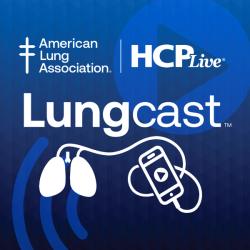
OR WAIT null SECS
HeartMate 3 Improves Patient Outcomes, Regardless of Transplant Eligibility
New research suggests Abbott's HeartMate 3 could revolutionize preimplantation strategy by eliminating use of categories based on transplant eligibility.
Mandeep Mehra, MD
Fresh on the heels of the US Food and Drug Administration’s decision to OK a new implantation technique, a Brigham and Women’s Hospital-led study is suggesting use of Abbott’s HeartMate 3 heart pump could revolutionize current strategies for treating heart failure.
Results of the analysis, which was funded by Abbott, revealed the superior treatment effect of the HeartMate 3 left ventricular assist device (LVAD) compared to the HeartMate II for both bridge-to-therapy (BTT) or destination therapy (DT) patients—indicating the use of categorizations based on transplant eligibility could be abandoned in favor of a single strategy of improving survival and quality of life in patients.
As part of a prespecified secondary analysis of the Multicenter Study of MagLev Technology in Patients Undergoing Mechanical Circulatory Support Therapy With HeartMate 3 (MOMENTUM 3) trial, investigators compared how current or future transplant eligibility impacted clinical outcomes of patients receiving LVADs. Of the original 1028 patients included in the MOMENTUM 3 primary analysis, 1020 patients were included in the secondary analysis.
Of the 1020, 38.8% (n=396) were in the BTT/BTC group and the remaining 61.2% (n=624) were in the DT group. Patients in the DT group had a mean age of 63 years and 513 were men. The mean age of patients in the BTT/BTC group was 55 years with men making up 82.2% of that group.
Overall, 50.5% (n=515) received the magnetically levitated centrifugal-flow HeartMate 3 pumps and the remaining 49.5% received the axial-flow HeartMate II devices. Investigators pointed out 198 patients from both the DT and BTT/BTC groups received a HeartMate II and HeartMate 3 device, while 307 and 317 patients in the DT group received the HeartMate 2 and Heartmate 3 devices, respectively.
The primary endpoint of the study was survival free of disabling stroke or reoperation to remove or replace a malfunctioning device at 2 years. Investigators also noted secondary endpoints including quality of life, functional status, and adverse events.
When examining the primary endpoint among study participants, results demonstrated significantly greater success in achieving the primary endpoint with HeartMate 3 than HeartMate II devices, regardless of whether patients received a BTT/BTC or DT preimplant designation (HRs:0.62 [95% CI,0.40-0.94] and 0.61 [95% CI, 0.46-0.81], respectively). Additionally, event-free survival for patients with HeartMate 3 devices was not significantly different between BTT/BTC and DT groups (76.8% for the BTT/BTC group and 73.2% for the DT group; log-rank P=0.19).
Multivariable Cox proportional hazards model revealed HeartMate 3 pump type, better baseline renal function, and nonwhite race were factors independently associated with success in regard to the primary endpoint. Investigators noted preimplantation designation was not significantly associated with this outcome (HR, 0.83 [95% CI, 0.64-1.09]; P=0.18).
In an interview with HCPLive®, lead investigator Mandeep Mehra, MD, executive director of the Brigham's Center for Advanced Heart Disease, suggests it may be time to abandon the preimplantation categorizations based on transplant eligibility.
“Given that the journey on an LVAD with the newest pump is now quite forgiving, some patients may elect to continue on the LVAD alone and forgo transplantation for as long as possible,” Mehra said. “Such a tactic will also allow patients to not fall ‘through the cracks’ if they do not fit into the discrete categories ‘upfront’ which can lead to delay in decision making and potential harm to patients.”
This study, titled “Association of Clinical Outcomes With Left Ventricular Assist Device Use by Bridge to Transplant or Destination Therapy Intent The Multicenter Study of MagLev Technology in Patients Undergoing Mechanical Circulatory Support Therapy With HeartMate 3 (MOMENTUM 3) Randomized Clinical Trial,” was published in JAMA Cardiology.
Related Content:


